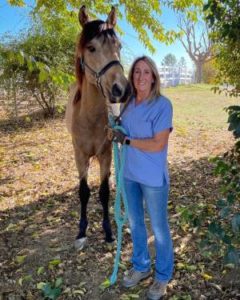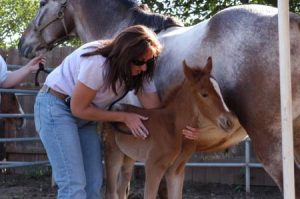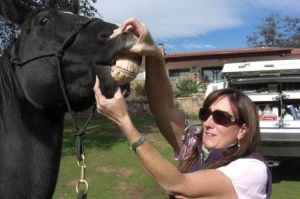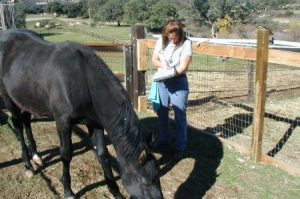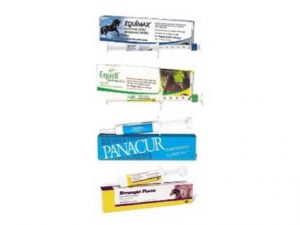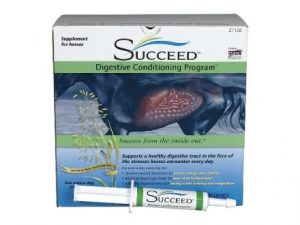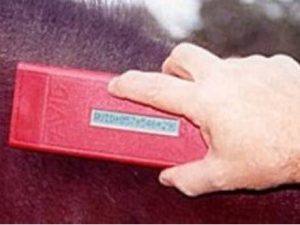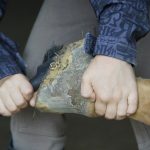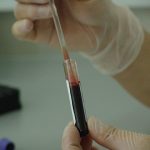Dehydration is the loss or deficiency of water in body tissues. The condition may result from insufficient water intake and/ or excessive loss of water from the body, as from profuse sweating or diarrhea. Mild dehydration may correct itself naturally when the horse drinks or it may require minor medical intervention. However, severe dehydration can damage the kidneys, reduce blood flow throughout the body, and lead to colic or other problems. Severe dehydration requires more intense medical treatment.
You can evaluate your horse’s level of hydration by observing the reaction to skin tenting. Pinch up and pull out a "tent" of skin along the side of the neck. In a normally hydrated horse, the pinched skin quickly returns back to a flat position. In a dehydrated horse, the pinched skin stays tented up or returns slowly. Skin tenting is only a crude test of hydration. Note that a dehydrated horse may sweat excessively or may not sweat much in a hot climate, and may be slightly depressed or quiet
Normal horses drink 5-15 gallons of water per day, depending on the climate and their level of work. To ensure adequate water intake:
- Check your horse’s water source at least daily.
- Make sure the water is clean, and free from foreign materials and dead insects or animals.
- Provide unobstructed access to the water source. Ponds should not have an excessively muddy border.
- Check for proper function of automatic water sources.
- Check that the water is not too hot or frozen.
Dehydration can be prevented and treated by providing plenty of water. An average horse drinks 150 cc (ml) per swallow. Stand on the left side of the horse’s neck so you can see the swallows as they ripple down the neck. You can estimate your horse’s water intake by counting the number of swallows while the horse is cooling out.
Any non-automatic water container should have marks at the 2 gallon level so total daily water intake can be monitored.
To ensure that your horse consumes enough water on a trip away from home, take some water from home and mix with the water at the new location. Try using drops of peppermint in your water at home and then also add it to the water at the new location. Accustom your horse to drinking with mentholatum salve applied around the nostrils. Or, you can buy bottled spring water or distilled water to use when your horse travels away from home.
To treat dehydration related to competition or illness, keep the horse in a cool, quiet place and set out 2 sources of water: the usual water and also a bucket of water containing 50 grams (3 tablespoons) of sodium bicarbonate (baking soda) and 30 grams (2 tablespoons) of KCI/NaCl(Lite salt). Dehydrated horses with electrolyte loss may choose the water containing the bicarbonate and Lite salt, rather than its usual water.
When your horse is once again hydrated normally, you should be extra vigilant about water and electrolyte intake. Electrolytes can be supplied via a salt block.
If you have any concerns or questions about Hydration or Dehydration contact us at 619-659-1180.

